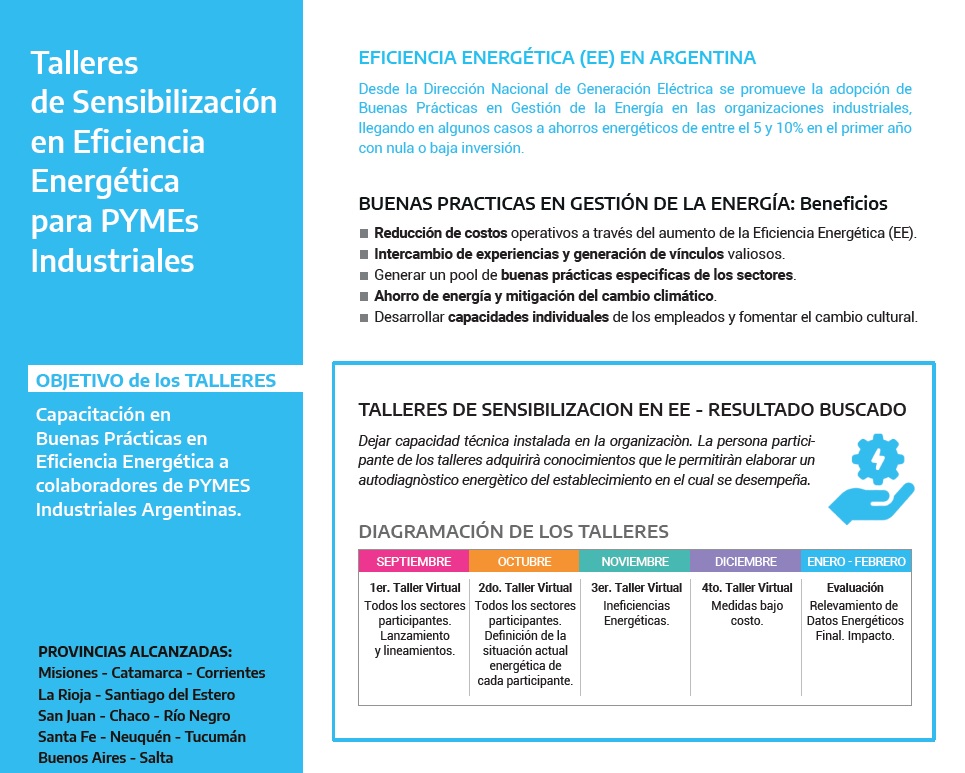
The Secretariat of Energy of Argentina and the Energy Efficiency Project in Argentina invite industrial SMEs to enroll in the training course.
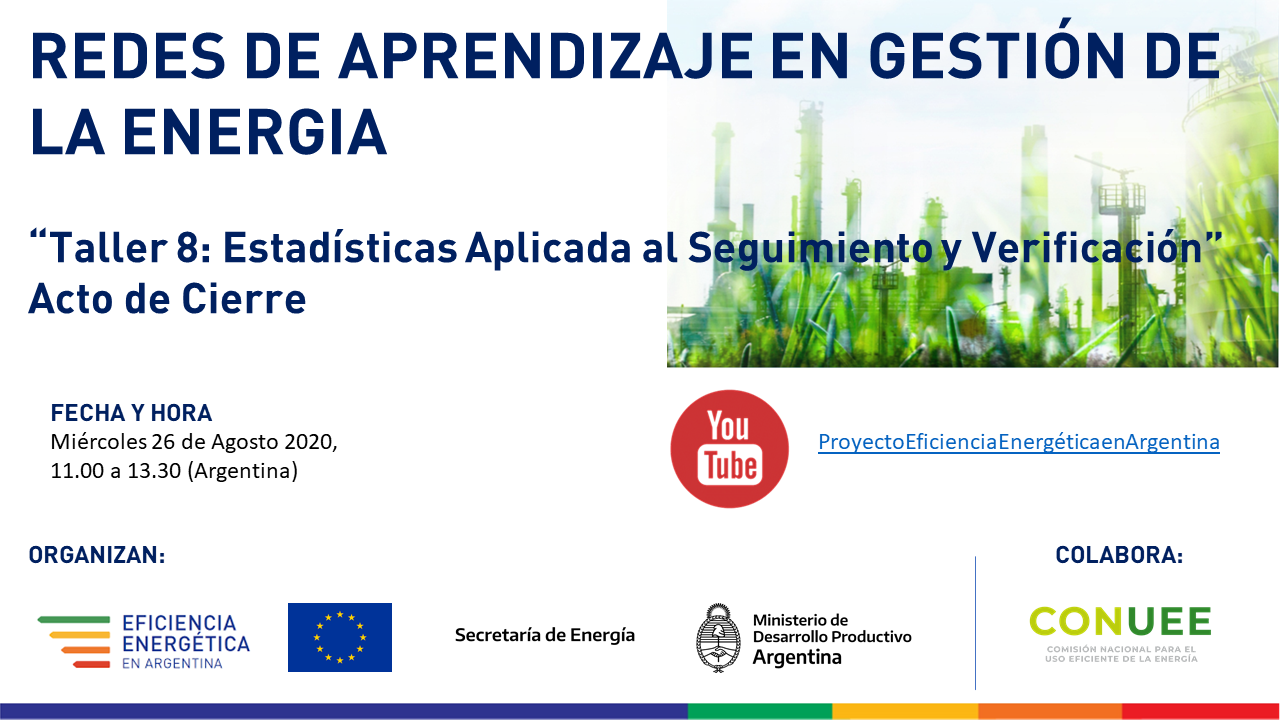
The cycle of virtual workshops of the Learning Networks was concluded with the participation of representatives of more than 60 companies in Argentina.
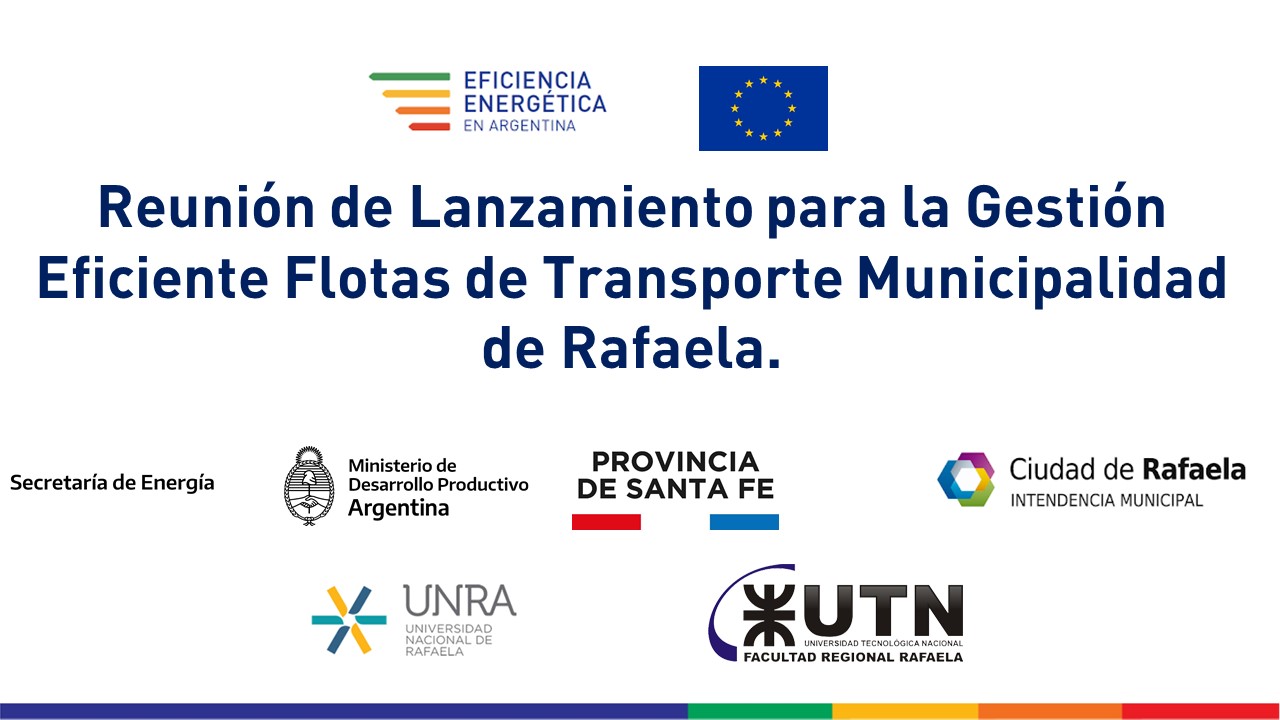
The Pilot for Efficient Management of Transport Fleets in Rafaela has been launched with the participation of authorities from the Secretariat of Energy, the Secretariat for Ecosystem Development of the Province of Santa Fe, the Institute for Sustainable Development of Rafaela, the National University of Rafaela and the National Technological University.
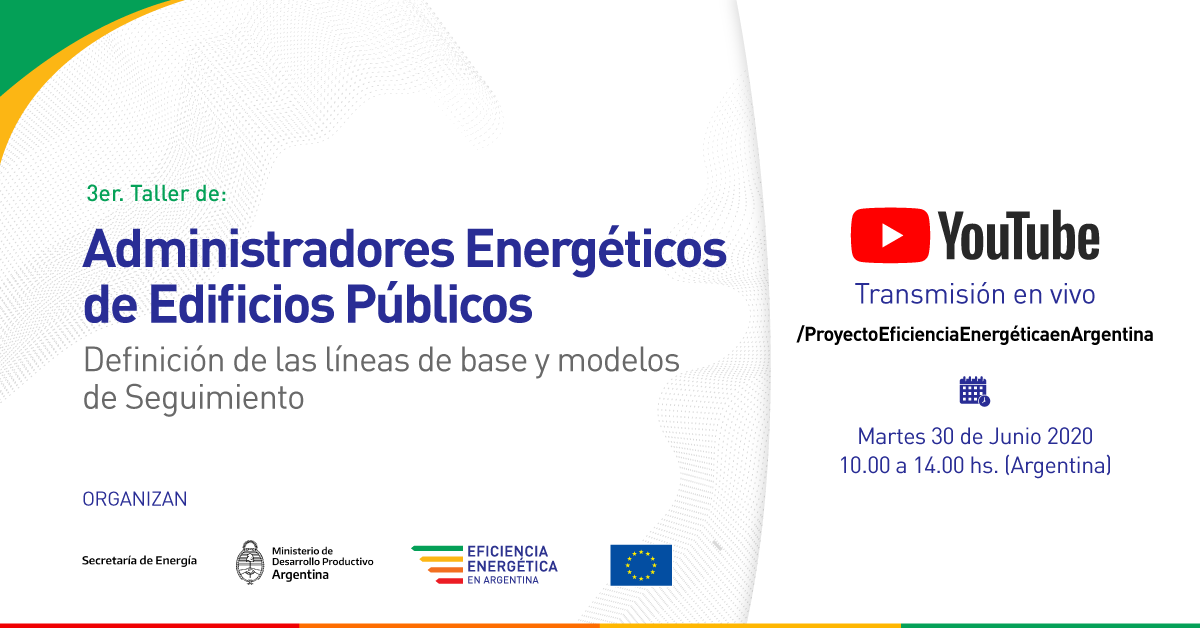
With more than 180 participants via Zoom, plus an additional 100 via live streaming on YouTube, the workshop dealt with topics related to the definition of baselines and monitoring models to know and evaluate the energy performance of Public Buildings.
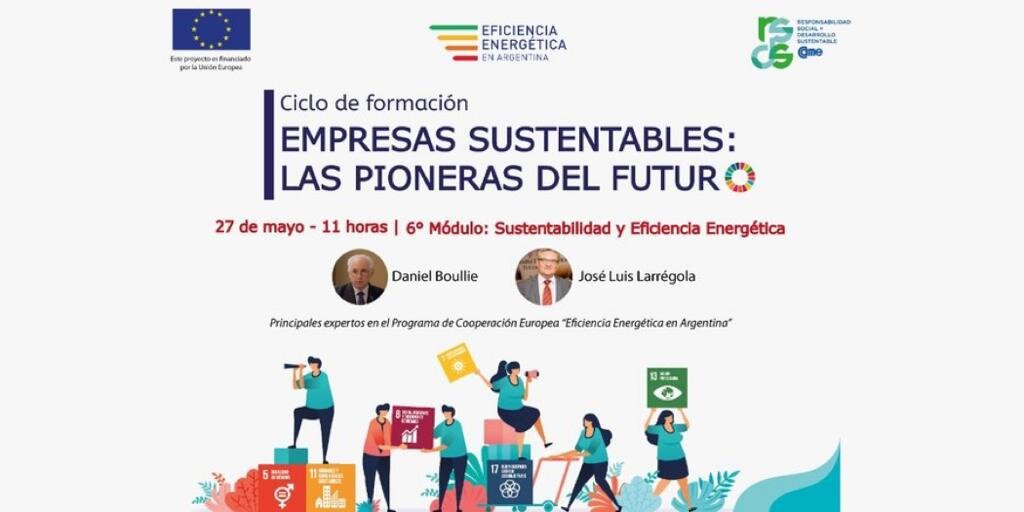
Organized by CAME's Corporate Social Responsibility department, we participated in the Webinar aimed at Sustainable SMEs on the relevance of implementing Energy Efficiency measures and their economic, social, technological and environmental impact and their link with the Sustainable Development Goals.
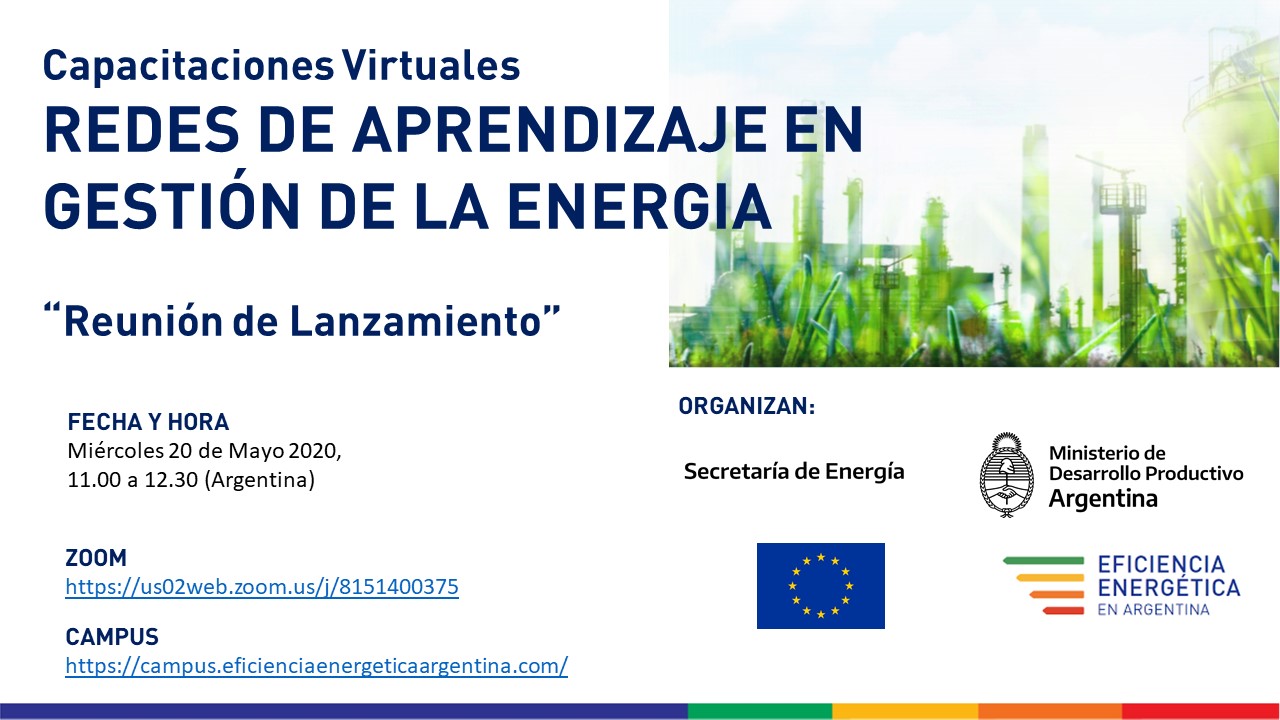
The virtual trainings of the Energy Management Learning Networks were launched today with a total of 99 participants
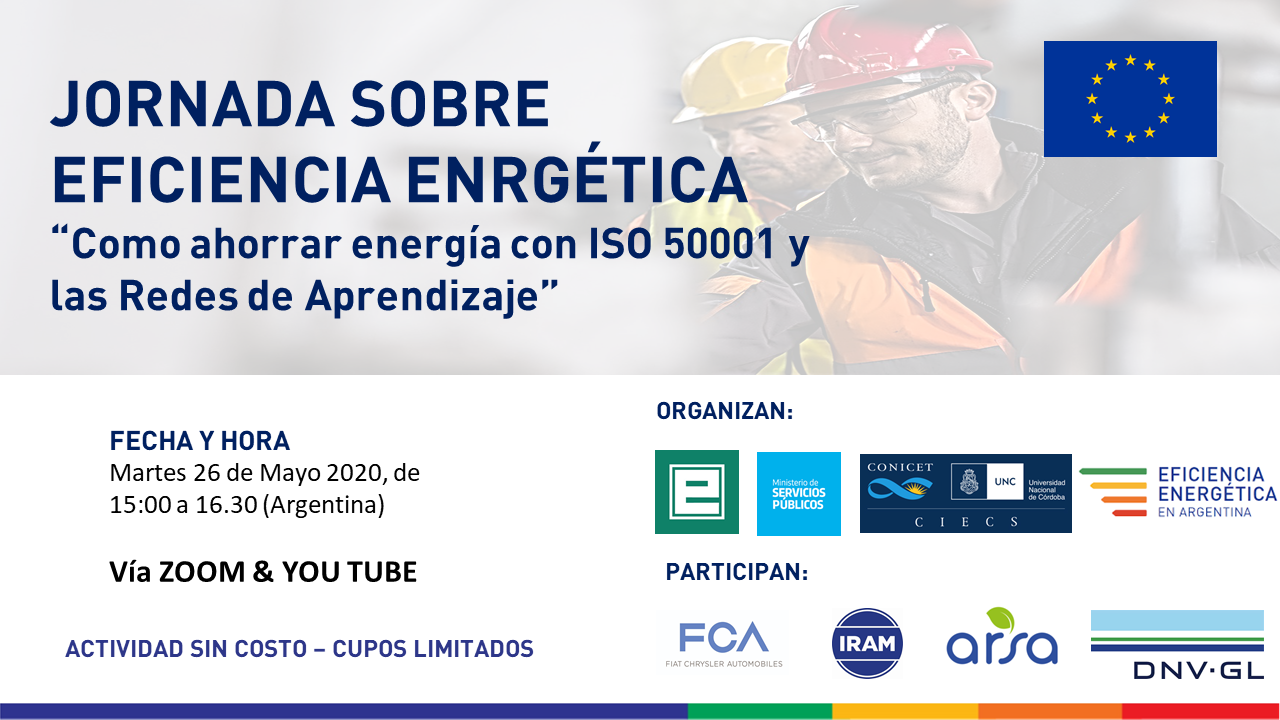
The online Conference on Energy Efficiency counted with more than 350 participants on Zoom and 110 on You tube.
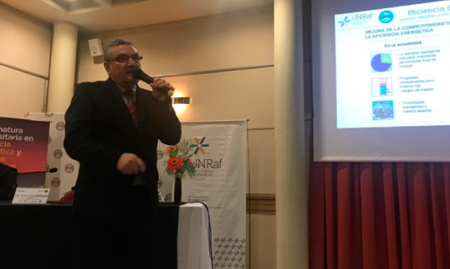
The Secretary of State for Energy of the province organized a series of presentations on energy
efficiency, together with José Luis Larrégola Ferrer, representative of the "Energy Efficiency in
Argentina" project, funded by the European Union. The presentations taking place May 13-15,
marked the launch of the II nd Edition of the Energy Management Training Program.
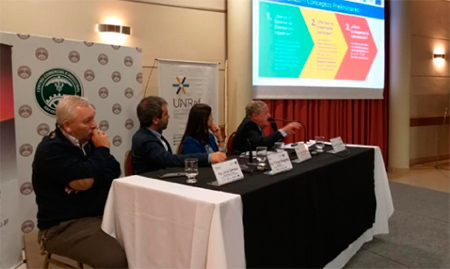
Representatives of the European project "Energy Efficiency in Argentina" participated in the seminar on “Energy Efficiency in Industry” organized by the National University of Rafaela (UNRaf) and the Commercial and Industrial Center of Rafaela and the Region (CCIRR). The event took place on May 13 in the City of Rafaela.
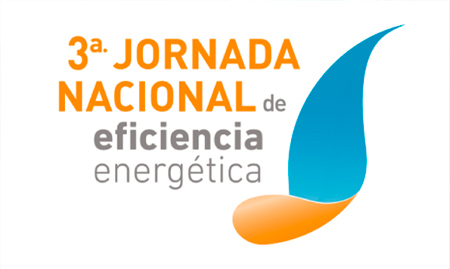
To follow up on the commitment made by the Government of Argentina to ratify the Paris Agreement on Climate Change and counting on the experience of the European Union of more than 20 years in the implementation of climate policies, the III National Conference on Energy Efficiency is organized in Buenos Aires, Argentina.
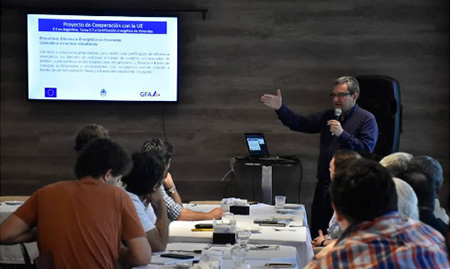
Experts from the European project “Energy Efficiency in Argentina” held a day of lectures on renewable energies, alternative energies, policies and new techniques with the aim of optimizing the use of energy in all areas.
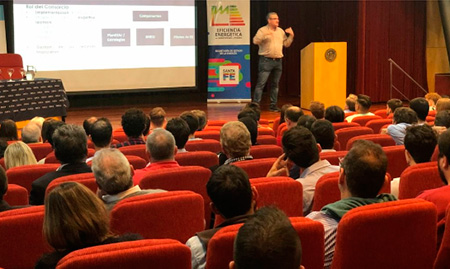
Invited by the Secretariat of State for Energy of the Province, the expert of the European Union in energy efficiency, José Luis Larrégola Ferrer, visited industries of Rafaela, Santa Fe and Rosario, and provided training in the framework of the Training Programs for Energy Managers and Learning Networks carried out by the Province.
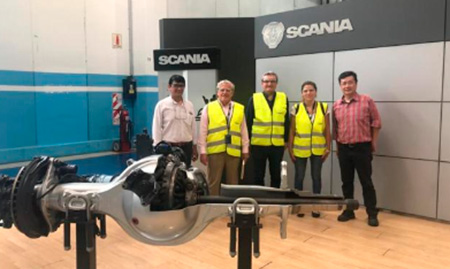
The European project "Energy Efficiency in Argentina" presented yesterday in Rosario aims at collecting statistical data on what, how and for what energy is consumed in Argentina in order to save costs in the industrial, residential and transport sectors.
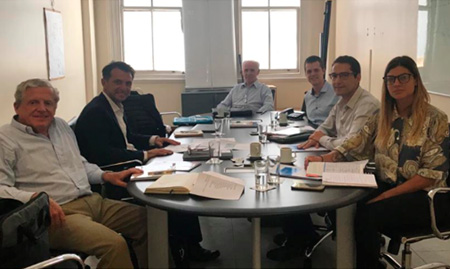
The Oil Industry, through the Argentine Association of Fats and Oils (ASAGA) was invited to participate in activities organized in the framework of the European cooperation project "Energy Efficiency in Argentina". The project will provide technical support to effectively carry out the actions required in the sector.
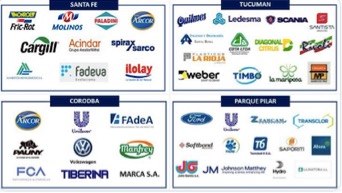
The EU project Energy Efficiency in Argentina has already set up 4 Learning Networks made up of 10-15 industrial establishments each. These establishments are in the process of implementing an Energy Management System (ISO 50001) in order to achieve savings in their consumption.
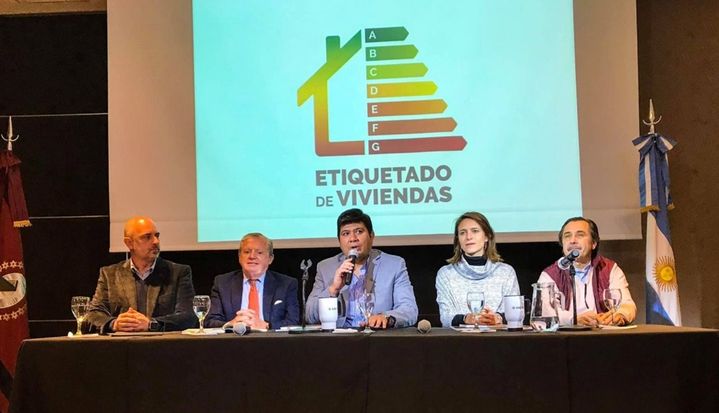
The launch of a pilot test to learn more about energy consumption in Argentina is closer to its implementation now with the signing of the Agreement between the College of Architects of Salta (CAS) -through the CAS Foundation-, and the project Energy Efficiency in Argentina, funded by the European Union.
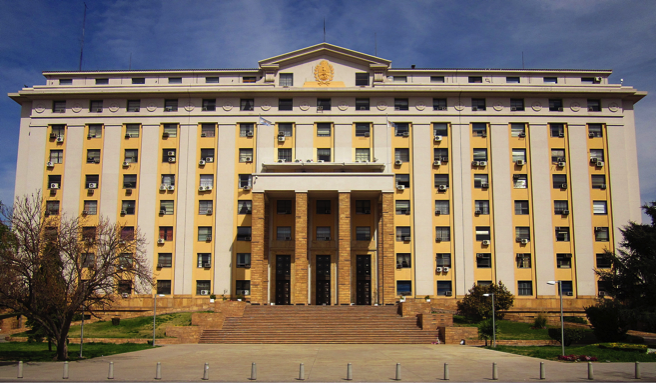
One of the objectives set by the project Energy Efficiency in Argentina is the development of Energy Audits in Public Buildings.
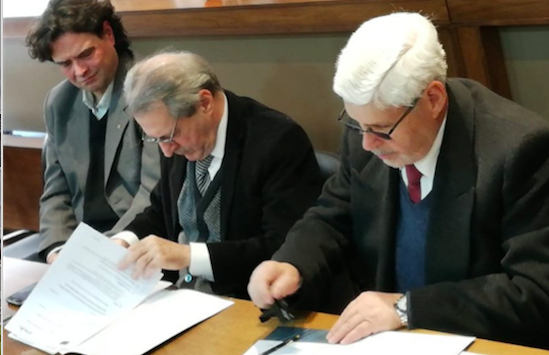
The National Balance of Useful Energy is closer to its launch and development now that the agreement between the National Technological University and the EU project Energy Efficiency in Argentina has been signed.
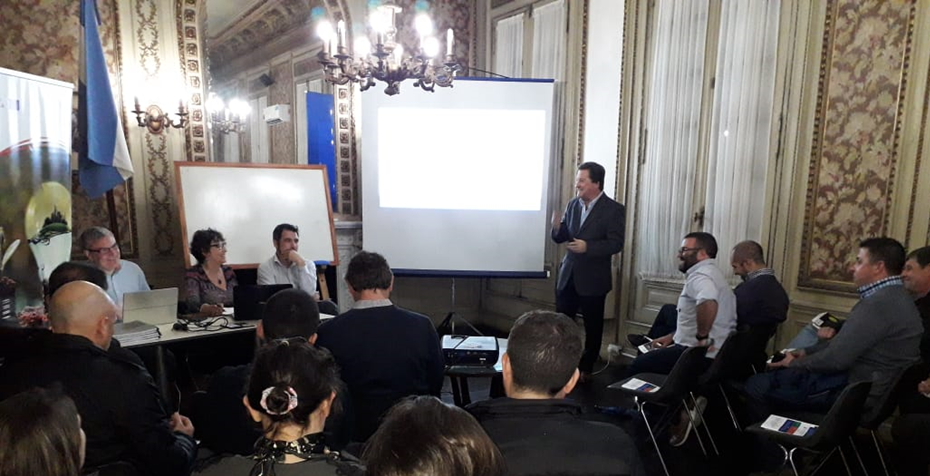
The WORKSHOP "Energy Management Systems in the Pulp-Paper Sector" was held at the headquarters of the Association of Manufacturers of Pulp and Paper AFCP, Buenos Aires on September 9, 2019.

With a broad participation of multiple industrial branches representing the private sector, a workshop took place at the UIA headquarters to identify opportunities for the implementation of energy efficiency actions. The event was organized within the framework of the Energy Efficiency in Argentina project, financed by the European Union.
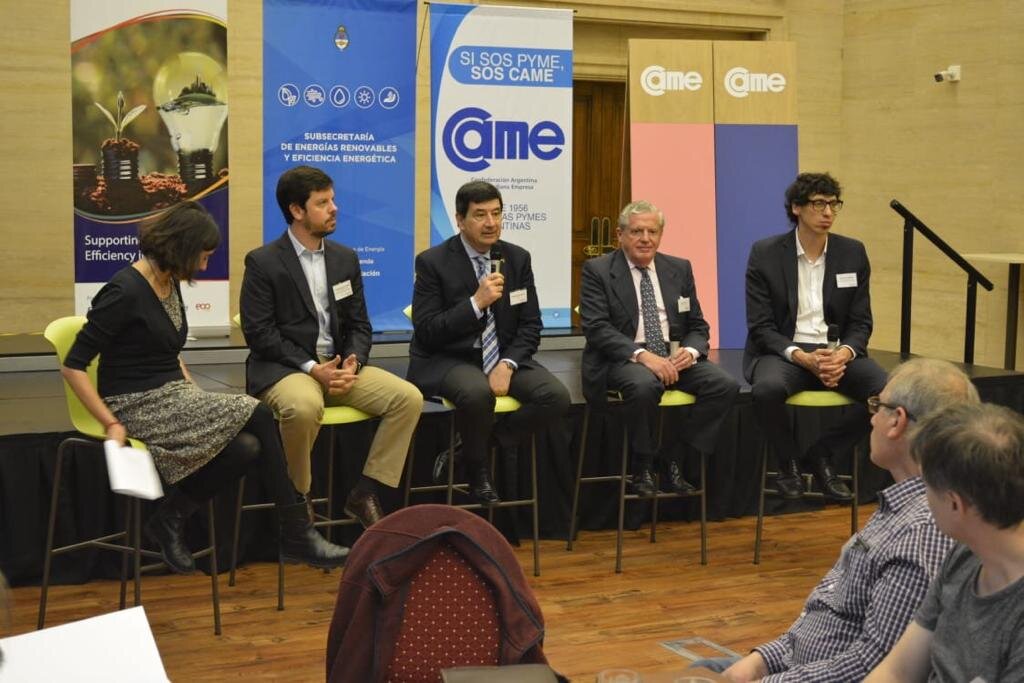
A workshop on identifying opportunities for the implementation of energy efficiency actions in the medium and small enterprises was held at CAME headquarters on September 19. The event was organized within the framework of the Energy Efficiency in Argentina project, financed by the European Union.
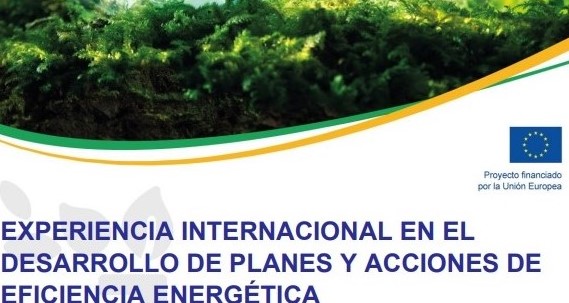
As a supporting tool in the elaboration of a proposal for the National Energy Efficiency Plan in Argentina (PlanEEAr), national and international experts in charge of the European project “Energy Efficiency in Argentina” analyzed the experience in energy efficiency policies of several countries in Latin America and the European Union.
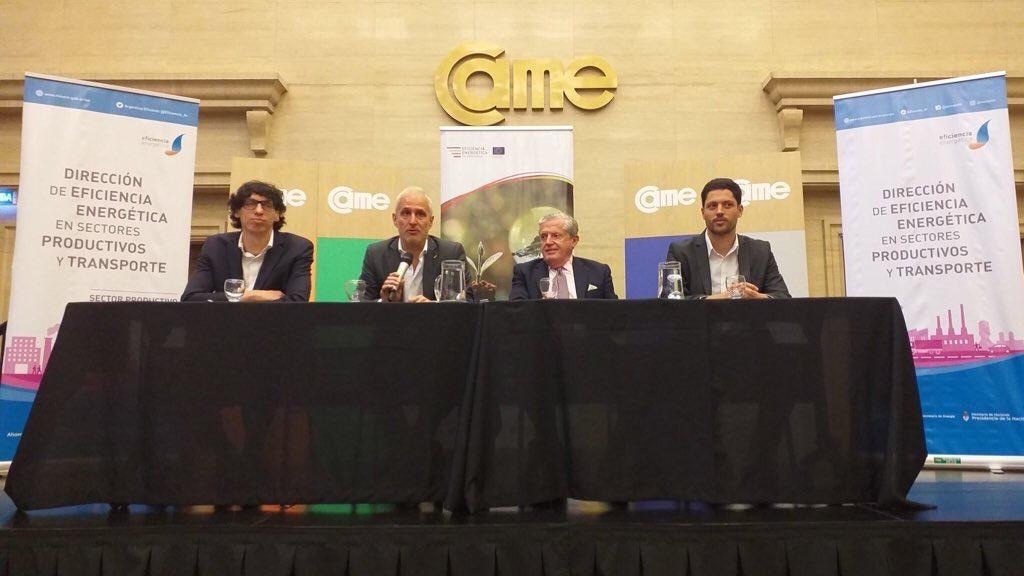
Last Thursday, October 17, at the headquarters of the Argentine Confederation of Medium-sized Enterprises (CAME) took the Workshop Network Learning Networks in Energy Management Systems.
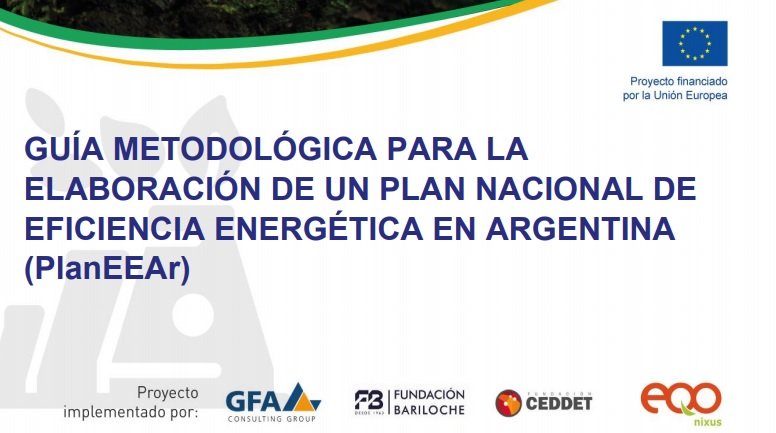
The methodology that will be applied in the elaboration of the proposal of the proposal of the National Energy Efficiency Plan (PlanEEAr) of the Government of Argentina is based mainly on design and implementation of energy policies guidelines of ECLAC / OLADE / GTZ (2003) and OLADE (2017) and on the energy efficiency roadmaps of the International Energy Agency.
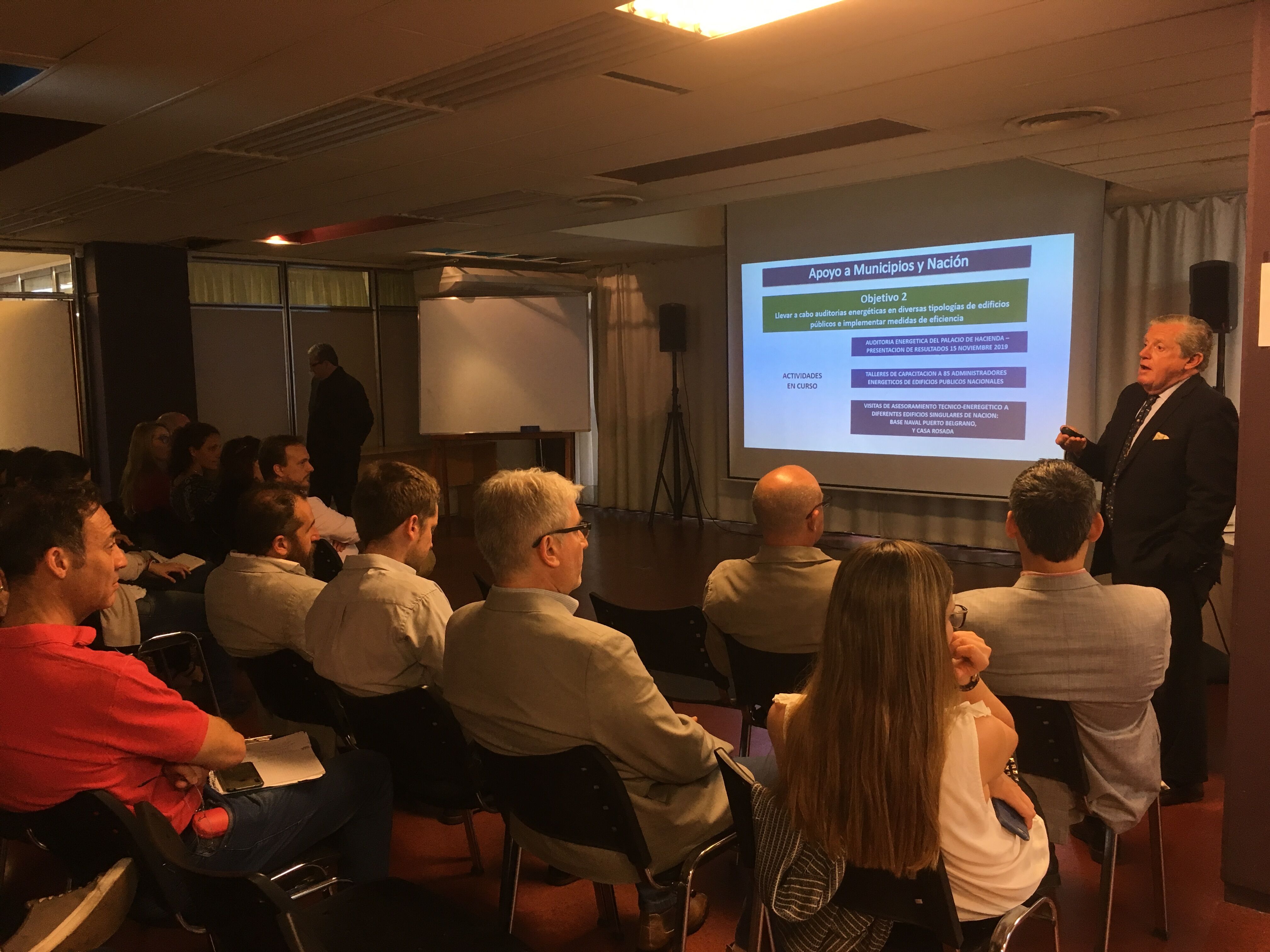
The Housing Energy Labelling Pilot in Mendoza was officially closed on 25th October during an event at the Colegio de Arquitectos de Mendoza/ CAMZA. During the pilot test, 50 professionals participated in the training and 200 homes were certified in the cities of Godoy Cruz and Mendoza.
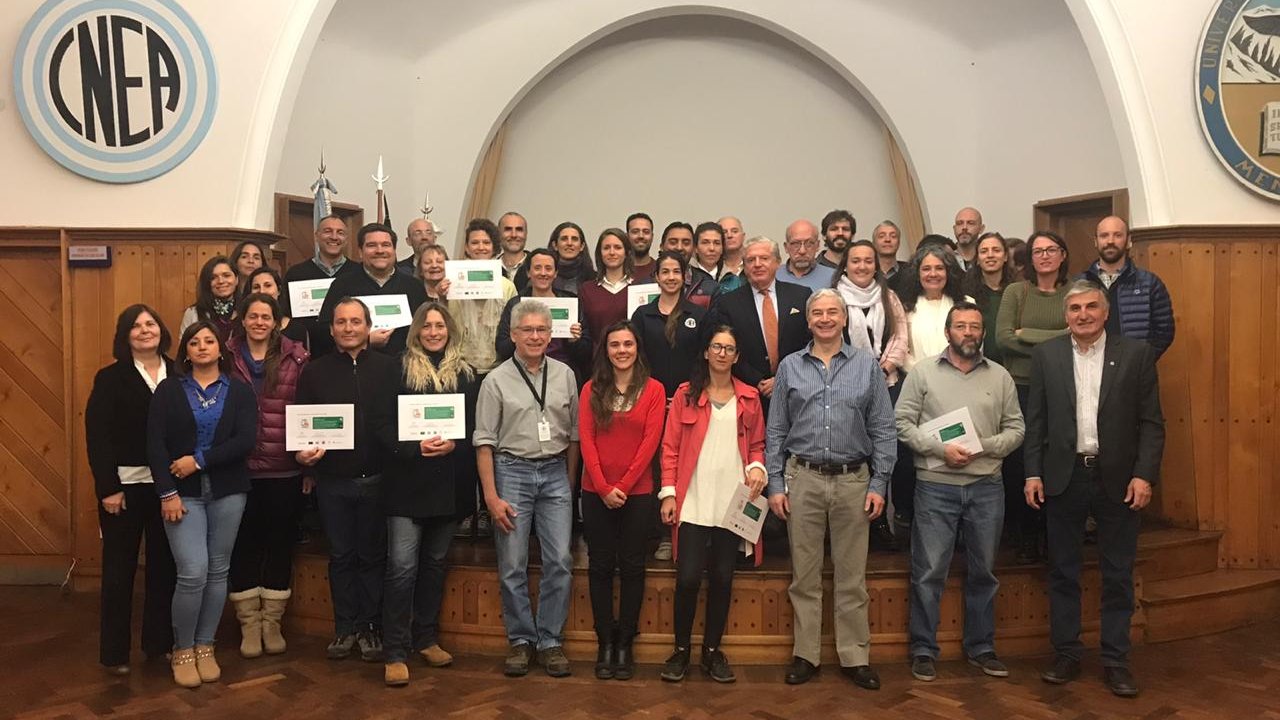
The Energy Labelling process in Bariloche registered 200 certified homes. A closing event was organized on November 4 at the Bariloche Atomic Center, where the results obtained were presented and the certificates of the project for the study of energy efficiency of housing conducted in the city of San Carlos de Bariloche were delivered.
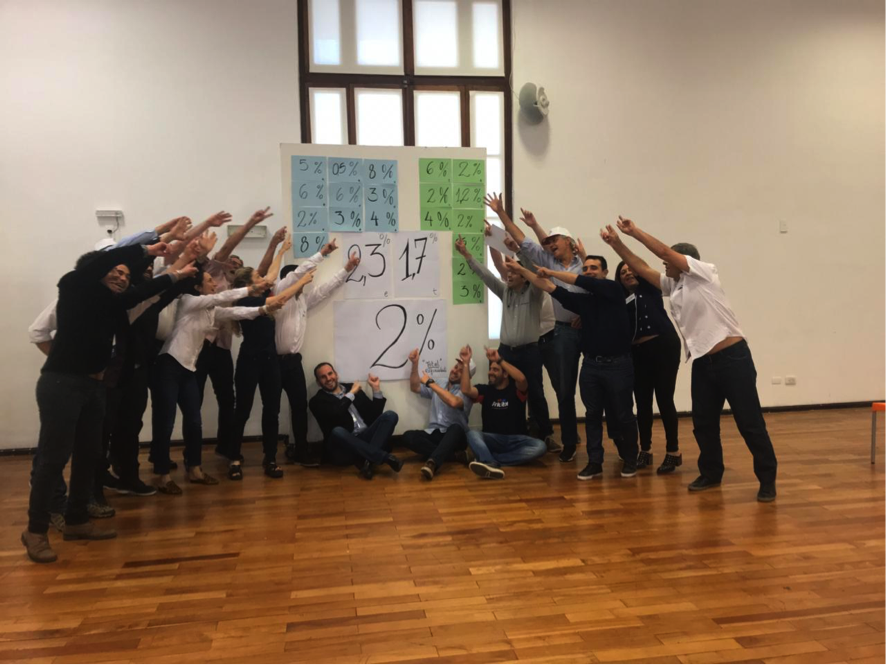
For one year, professionals from 11 industries in Santa Fe shared energy efficiency measures with the advise of experts from the State Secretariat for Energy of the province, the Undersecretary for Energy Saving and Efficiency of the Nation, and the European Union, within the framework of the cooperation project "Energy Efficiency in Argentina".
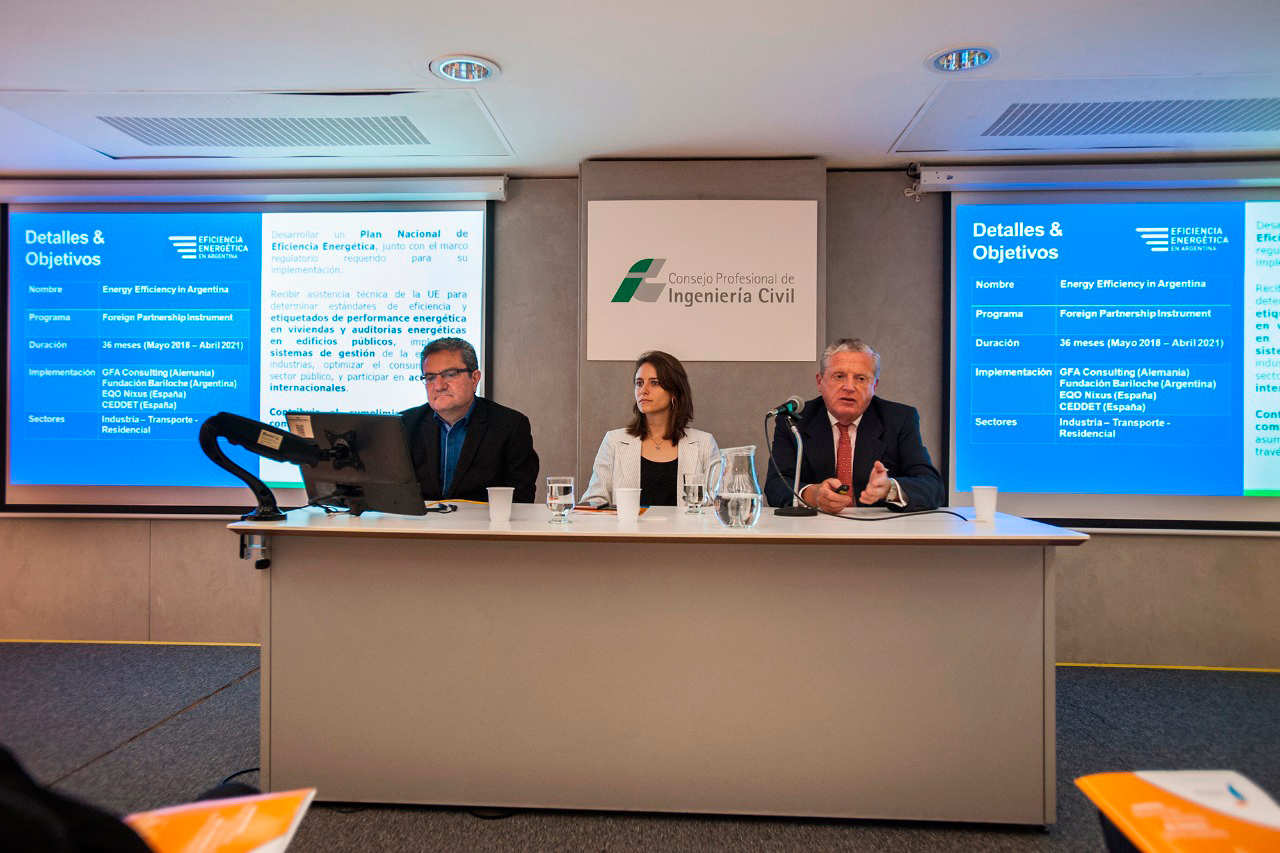
The Second National Day for Housing Certification was held at the Professional Council of Civil Engineering (CPIC) on November 21.
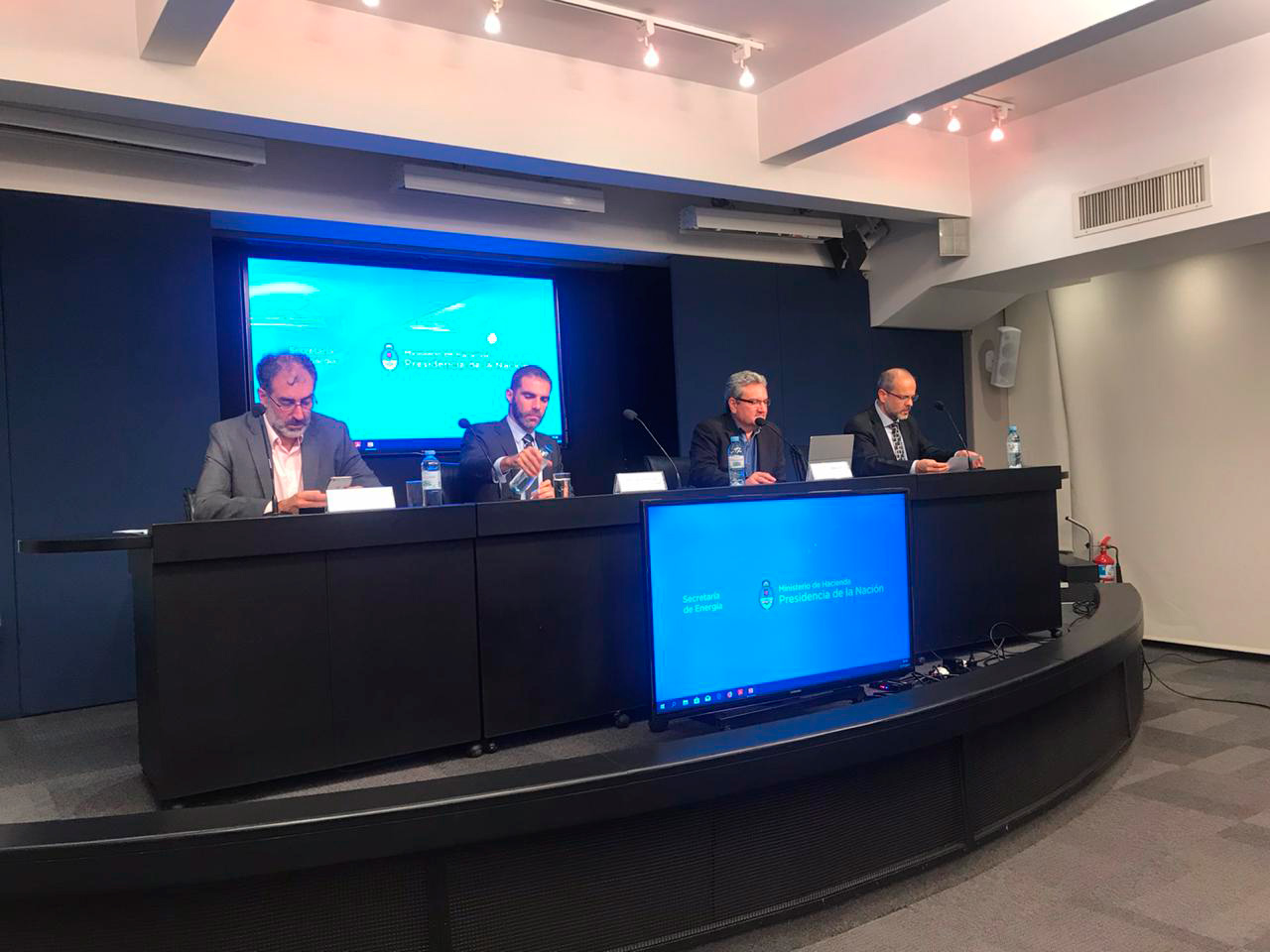
The public presentation of the results of the Energy Audit carried out at the Palacio de Hacienda (Treasury Palace) was held at the Microcine.
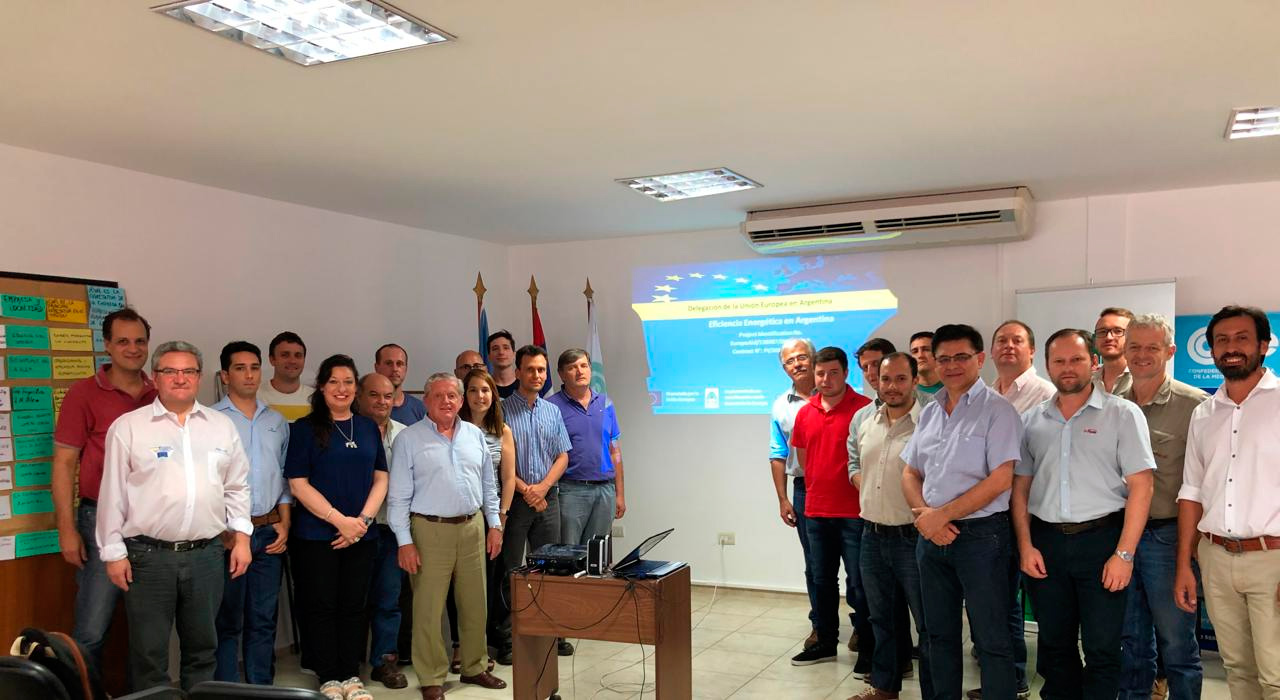
The 1st Workshop of the 5th Energy Management Learning Network in the Province of Misiones was held on November 20 at the headquarters of the Economic Confederation of Missions (CEM).
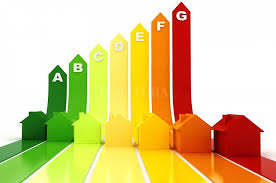
The Energy Efficiency Project in Argentina, and the National Program of Labeling of Houses of the Secretary of Energy invite to apply to participate in the Cuso de Etiquetado de viviendas (CEV) for trainers that will take place in the City of Buenos Aires between the 9th and 13th of March 2020.
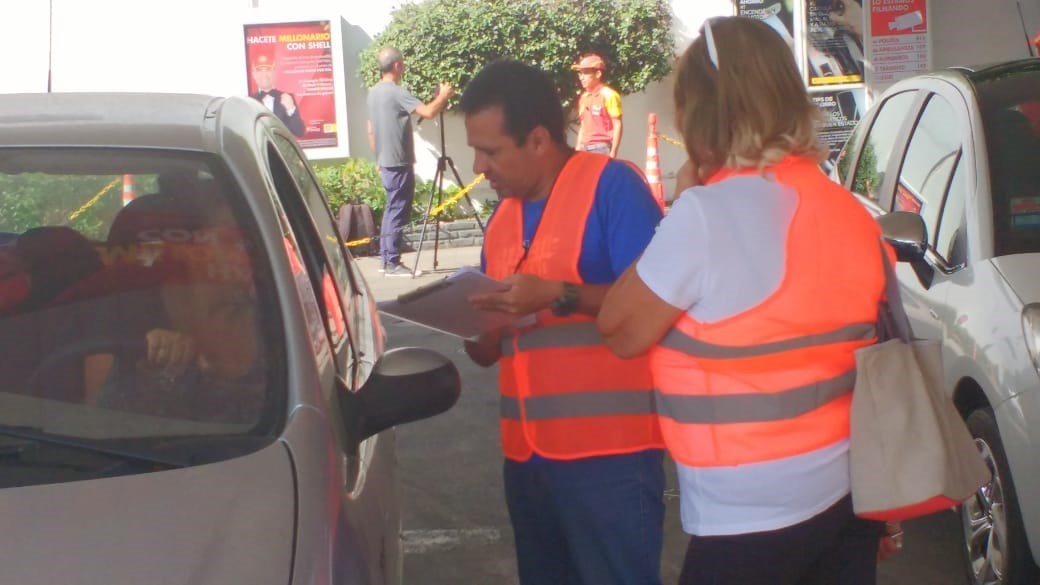
Within the framework of the Energy Efficiency Project in Argentina financed by the European Union, the Pilot Test of a National Transport Survey was carried out with the objective of developing the Balance of Useful Energy of the sector.
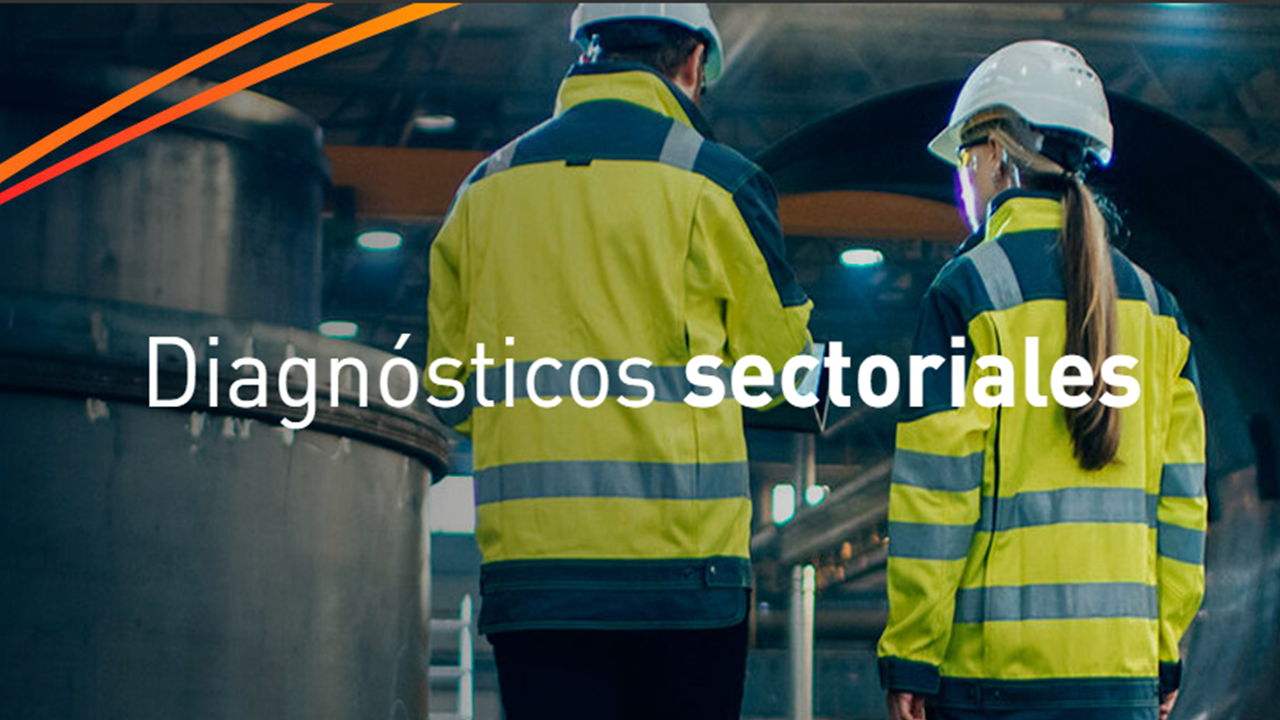
The general objective of a sector diagnosis is to achieve the characterization of the productive sectors in order to know their energy consumption, identify potential savings and evaluate effective measures and instruments to implement.
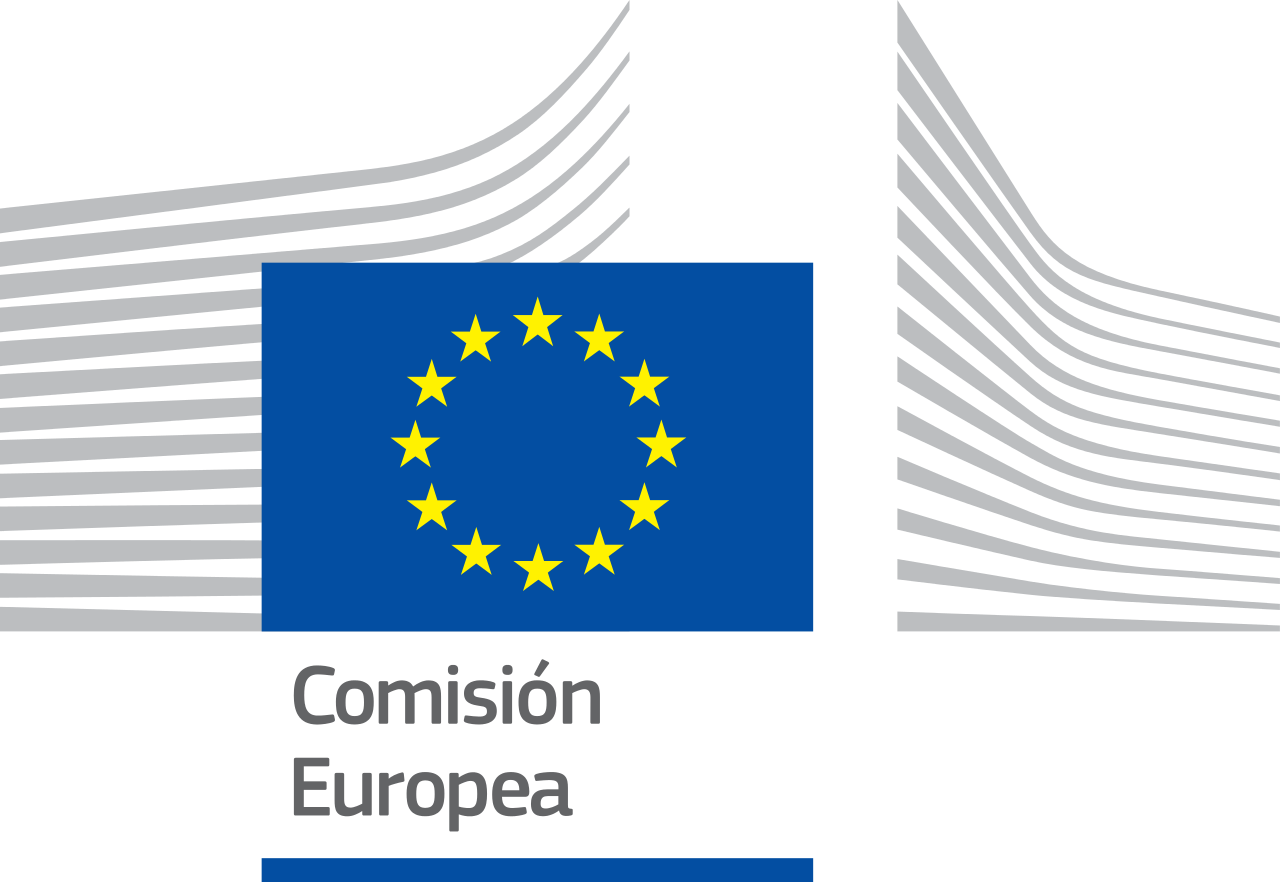
Improving the energy efficiency of a number of household appliances, from laptops to electric toothbrushes, is part of the EU ecodesign measures that become even more important in the current context of confinement due to COVID-19, a context in which household energy consumption tends to increase.
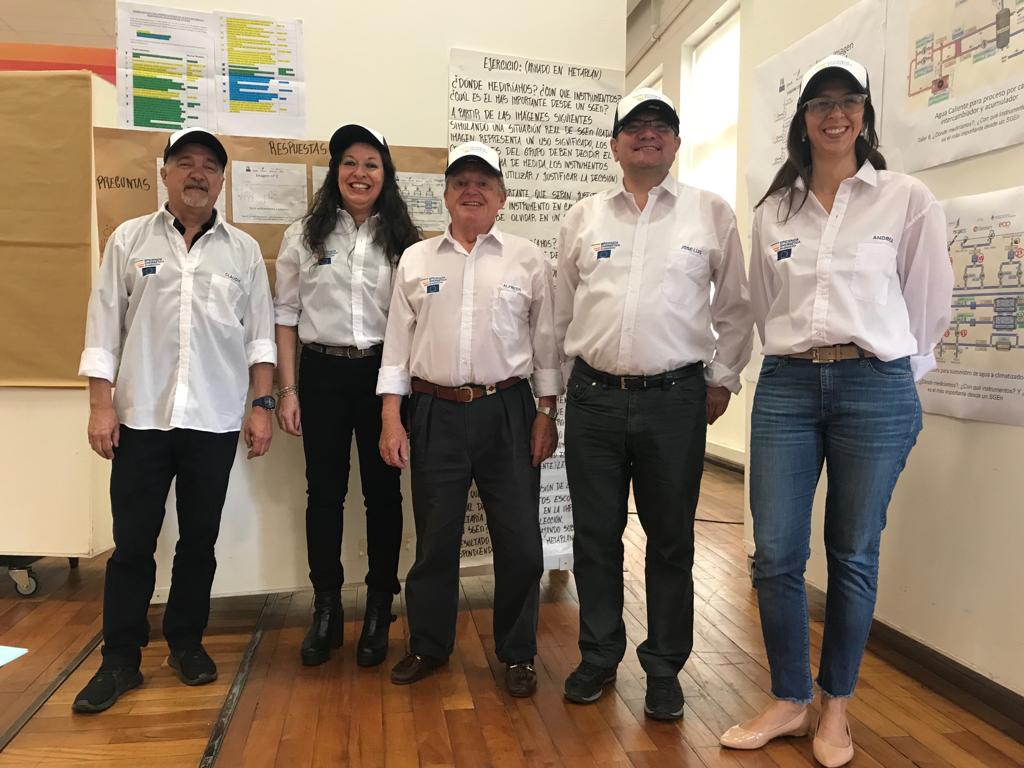
In the current confinement situation, both at national and global level, and wanting to keep active the implementation and operation of an Energy Management System, the 60 companies participating in the 5 Learning Networks will be invited to participate in online trainings.
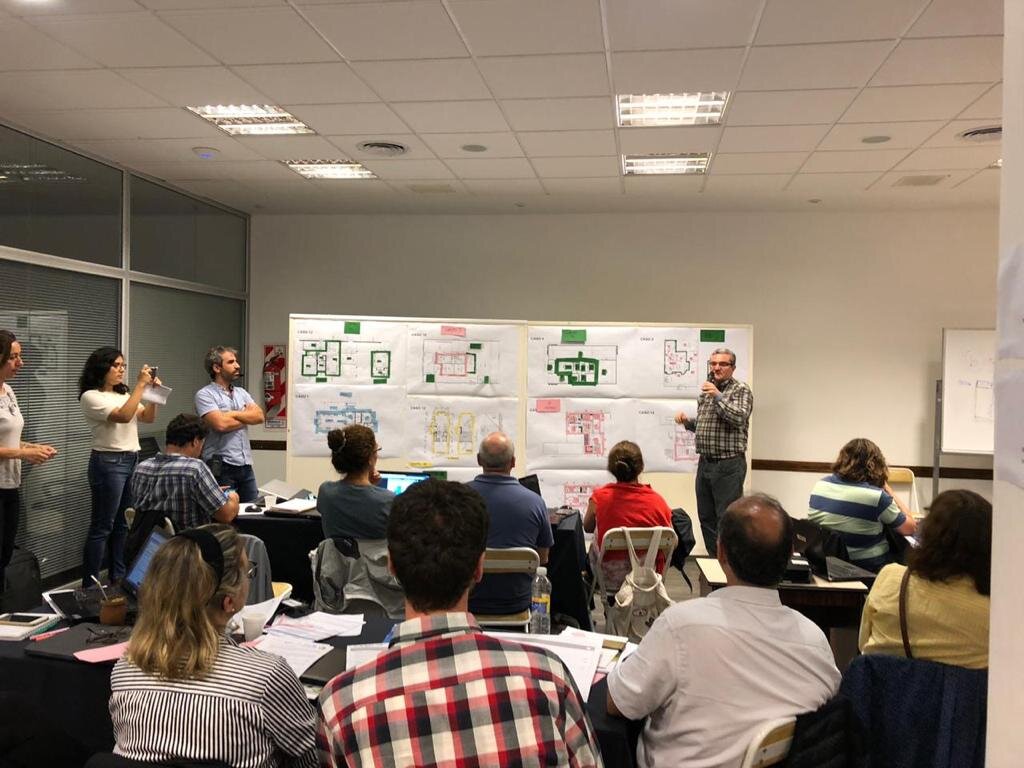
The Course on House Energy Labeling for Trainers was carried out from March 9 to 13 and took place at the headquarters of the Professional Council of Telecommunications Engineers (COPITEC). Aiming to generate capacities throughout the country and form a unique registry of trainers, the course was organized by the National Housing Labeling Program- Secretary of Energy, and the EU-financed project "Energy Efficiency in Argentina".
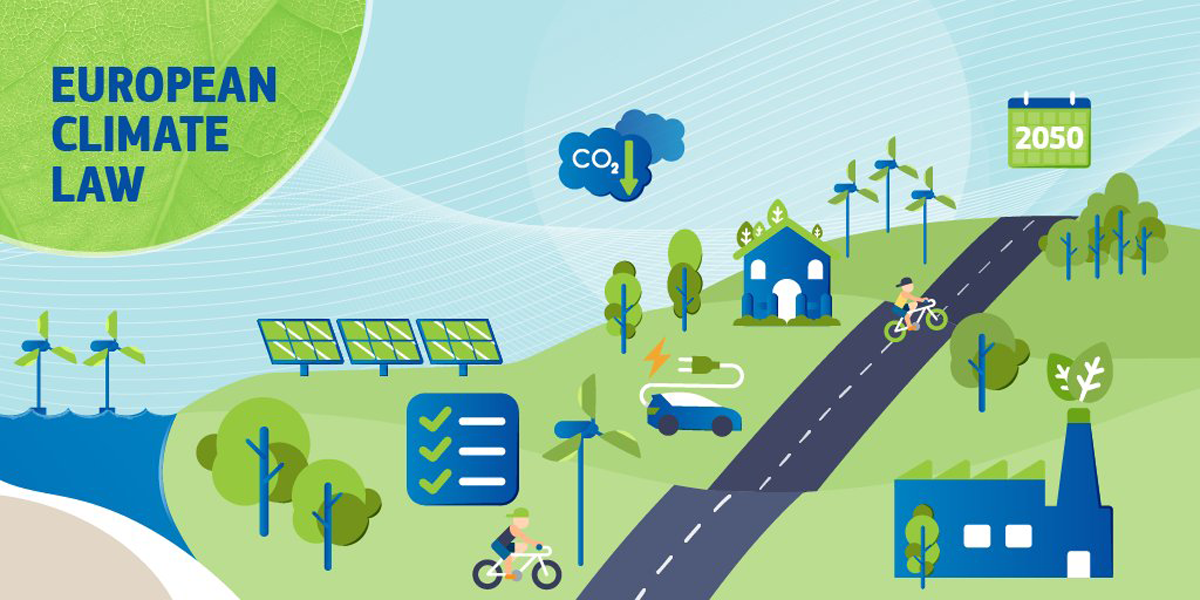
The commitments made by the European Union regarding climate change are reinforced by a new proposal to become climate-neutral by 2050. The European Climate Law sets the orientation of all EU policies and becomes a central element of the European Green Deal. At the same time, the Commission opens a public consultation on the future European Climate Pact.